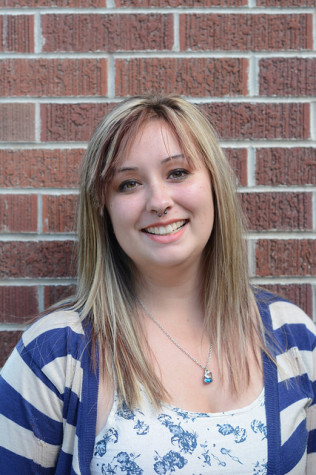EWU Campus police gain hands-on experience through training program
February 7, 2013
Michael Pry always has the “what-if” question in the back of his mind.
“What if my neighbor across the street comes out of his house attacking with a knife? What if a guy on the sidewalk tries to attack me? What am I supposed to do?”
Pry, a cadet with Eastern’s campus police, has been asking those questions since he joined the cadet program in 2010. He, along with six other cadets, help the campus police department function efficiently while getting hands-on experience working in the law enforcement field.
Robert Schmitter, an officer with campus police, says the goal of the cadet program is to teach those in the criminal justice program the ordeals they will have to face as police officers in the real world.
“We try to make it as real as possible,” Schmitter said, “They go through the same basic training as officers
do in the police academy. We put them through oral boards, just like a real officer would go through to get hired.”
Pry has been involved with law enforcement since his junior year of high school. He has been part of the Police Explorers program in Lacey, Wash., where he got to job shadow police officers.
“The cadets here definitely get to do more,” he said. “The explorers only got to ride along.”
One aspect of the cadet program that is modeled after a real-life situation is the interview. According to Schmitter, they are put through an oral board with officers asking questions.
Melissa Ferris, a first year cadet, said that during her interview she was asked a lot of hypothetical questions such as, “What would you do if your friend was suspiciously walking away from a closed shop and you called out to them and there was no reply?”
Abigail Rupert joined the cadets in 2012. Her interest in criminal justice started with an introductory class at a local community college.
“By the end of it I was spellbound. The instructor said, ‘That’s it, see you tomorrow,’ and I was like, ‘No, I want more information.’”
Basic training for new cadets starts in early September and includes learning how to cuff people properly, learning how to recognize people who are under the influence as well as identifying suspicious behavior, according to Schmitter.
One of the tests the cadets have to go through is getting sprayed with mace.
Unlike Pry, who has been through the mace training before, Ferris has yet to be sprayed.
“I know it’s not going to be a quick thing, and I wish I could just wash my face and be done with it,” Ferris said.
Pry said that the mace reactivates when exposed to water, and even three to four days after being sprayed the skin on your face is still warm.
“It’s all to test if we can fight through it,” he said, “What if someone sprayed us? We still need to be able to defend ourselves while under that pain.”
Pry, being the cadet with the most experience, is also responsible for teaching the newest cadets.
“Yes, the officers are there to teach us, but they’re busy,” Pry said.
It is the peer collaboration that allows the cadets to get better at learning by teaching themselves, according to Ferris.
Ferris said she wants to work in homicide and forensics. She wanted to be a police officer when she was a little girl but found herself wanting to get into education. It was her senior year when she wanted to work in law enforcement again.
“Actually, the show ‘CSI’ got me back on the path into law enforcement,” Ferris said. “It’s where it started and then it spread out from there.”
As per the training and learning experience, there are times to be serious and times when the cadets can be more relaxed.
Pry said it is about getting to know the people you work with.
Rupert said she likes the family and friendship part of the law enforcement culture.
“I think it was around Thanksgiving and we were in our footie pajamas watching movies in the actual police department,” Ferris said.
“You take the officers at the department and they’re just like kids.” It’s the palling around and jokes they make with each other, according to Rupert.
“It’s good to have a sense of humor,” Pry said, “especially when you’re in a field that has to deal with some tough situations.”
Ferris said she had an encounter with a drunk man dressed as a leprechaun.
Pry, Rupert and Ferris have not encountered a situation they found particularly intimidating. Pry said students find the cadets more approachable and easier to connect to because they are students themselves.
“We try to help work out students’ problems,” Pry said. They want students to know what mistakes they are making.
“We’re here to go to school. We don’t want to arrest them unless we have to and take them out of class,” Pry said.
Pry said it is community policing. It is a community service trying to connect with everyone on campus.
“I really love my job and the people in it,” Pry said







